Do condoms really stop HIV? What is the rationale?
Do condoms really stop HIV? What is the rationale?
The answer to this question is yes, the basis is very strong, and is a large number of clinical practice data around the world (including official health surveys, clinical research surveys, clinical medical papers, etc.), and has been recognized by the world's authoritative medical administrative organizations (e.g., the World Health Organization, the National Health Commission of China), medical academic organizations (medical societies in almost all countries of the world, including the Chinese Medical Association), medical It is also recognized by authoritative medical administrative organizations (such as the World Health Organization and the National Health and Safety Commission of China), medical academic organizations (medical associations in almost all countries in the world, including the Chinese Medical Association), medical personnel groups (such as the Chinese Medical Association), medical public welfare organizations (such as the Chinese Medicine and Health Association), and other organizations and individuals.
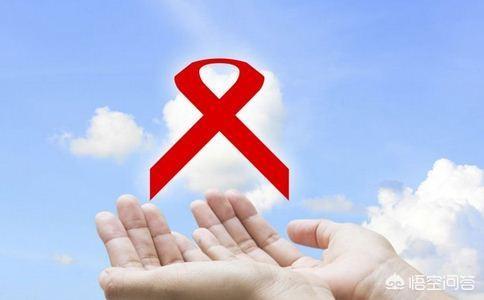
On the issue of condoms blocking many types of viruses, it is actually easy for many people to make a mistake of mechanical understanding. Some information shows that the pore size between the latex molecules of condoms is quite large relative to many kinds of viruses, and the gap between the latex molecules of most condoms on the market can be up to about 1,000 nanometers, whereas the viruses that we commonly and often mention that can be sexually transmitted are very small, for example, the size of the HIV virus (HIV) is about 120 nanometers, the size of the human papilloma virus (HPV) is about 55 nanometers, and the hepatitis B virus (HBV) is about 42 nanometers), can these viruses penetrate each other and occur through the condom? (Hepatitis B virus (HBV) is around 42 nanometers), can these viruses penetrate a latex condom and infect each other?
The answer, of course, is no!
This is because the penetration of objects in the microscopic environment is far from what we can see and visualize in the macroscopic world!
It's not that small molecules or substances will necessarily pass through large apertures!
The determining factor in whether a virus can pass through a gap in a barrier is not the size of the virus, but rather the affinity of the virus to the barrier material, and the fluidity and affinity of the fluid in which the virus is found!
In other words, even if an isolation is made with a molecular gap or pore size many times larger than a particular virus, the virus itself will not be able to penetrate if the fluid (blood, body fluids) that the virus is in cannot pass through that pore. This is because rubber molecules are very specific non-lipophilic, non-hydrophilic molecules. Molecules in body fluids can't even get really close to the pores and voids of the latex material, so it's even more unlikely that they can get through a latex condom. And the virus itself has a very low affinity for latex molecules, so it can barely get close, much less through.
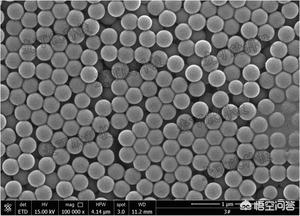
To give a simple example, the diameter of water molecules is almost the smallest among the substances we can see in our daily life, only 0.4 nanometers, much smaller than various viruses, but the water still can not pass through the aperture of the condom.
Of course, the condom must be a certified product and not have been used, and no abnormalities such as slipping, cracking, or perforation have occurred during its use, and it is worn the entire time.

Condoms have a limited role in preventing the spread of HIV and do not stop the spread of HIV 100 percent of the time.
In December 2015, a number of departments in Guangzhou jointly organized a collective physical examination of the high-risk group for STDs, such as sitting ladies and masseuses in nightclubs and bathing and massage centers. Among the 130 people, the prevalence of STDs was as high as 84 percent. However, statistics show that the condom use rate was 100 percent. Those who underwent medical check-ups reflected that they were very careful when they received clients, and that the health department regularly conducted training on the prevention and treatment of sexually transmitted diseases, and that they knew how to use condoms correctly. At the same time, they spend a lot of money on condoms and use high-grade, brand-name products.
Prior to this, two cases of HIV carriers were found in Zhaoqing City, Guangdong Province, during a medical examination of more than 200 women at high risk of sexually transmitted diseases in entertainment venues. According to the survey, both of her also used condoms 100 percent of the time.
So why have condoms failed to effectively stop the spread of HIV?
Based on long-term tracking surveys and studies, the CDC has clearly pointed out that condoms are not 100% safe in preventing the spread of sexually transmitted diseases (STDs), including AIDS. In addition to two factors, namely, the lack of proper use of condoms and their poor quality, a more important factor is that the raw materials of condoms themselves have fatal defects.
HIV is globular, with a maximum diameter of 120 nanometers, hundreds of times smaller than sperm. Condoms are made of natural latex, and each condom has about 100 million pores of 120 nanometers or more, so that the AIDS virus has the opportunity and possibility to penetrate the condom. In the semen of an AIDS patient, there are more than 10 million HIV viruses in one milliliter, so even if a condom of reliable quality is used correctly, there is still a chance of being infected with HIV.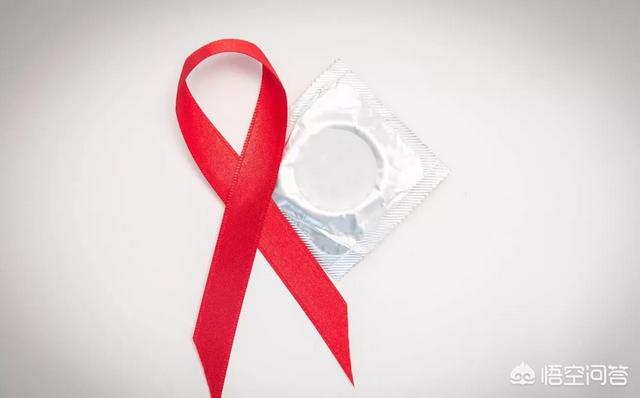
As a result, the U.S. government's drug regulatory agency has mandated that condom instructions and boxes must state "If used correctly, it can help reduce the likelihood of HIV infection"Warning.
Images in this article are from the internet
Condoms are now one of the most used and widely promoted forms of contraception. Although it is said that there are many forms of contraception nowadays, each of which has its own advantages and disadvantages.
The advantage of the condom is that it is not only a contraceptive, but also prevents the spread of diseases in general, and for more than 90% of the sexually transmitted diseases that are known today can be blocked by the condom.
For today's society, both male and female private life is still relatively messy, so condoms are the best form of contraception, bar none.
AIDS is known to be very scary, once infected with AIDS, there is no cure possible, and sexual transmission is the main way of transmission of AIDS, so many people are worried about condoms in the end can be enough to block AIDS?
Condoms are able to protect against AIDS, but only if your condoms are made by the right manufacturer, are in good condition, and are used in the right way. Then even the AIDS virus can not pass through the condom, so in this regard there is not so worried about AIDS will pass through the condom.
But why do some people still say that wearing a condom can also be infected with AIDS? We all know that nothing can be 100%, nowadays technology is so advanced because of the cold there are many deaths ah. There is an old saying, "You can't always walk on the river without wetting your shoes. Even if you can wear a condom every time, but not every time you buy a good one? Or is it the right way to use it? Or are you using it the right way? There are a lot of reasons why you can accidentally get infected with HIV. Then the only way is to moderate their own private life, outside as much as possible do not go to provoke some not clean people. This is the best way, after all, the body is their own, human life is only once, cherish.
No one is expected to say 100% to this question. Many of the answers to this question.The more reliable specialized doctors, from the data of the study, believe that up to 80% to 99% of the preventive effect. And from the layman's knowledge, there are various claims that even sometimes HIV can penetrate condoms.

Those who say this may think of HIV as a creature that can move, burrow, and is intelligent. Let's analyze this issue in terms of HIV itself, which, like all viruses, is an organism that needs to reside in a cell.The body itself is not capable of activity, after the invasion is relying on the phagocytosis of macrophages inside the body's immune system, carried to all parts of the body and infected.
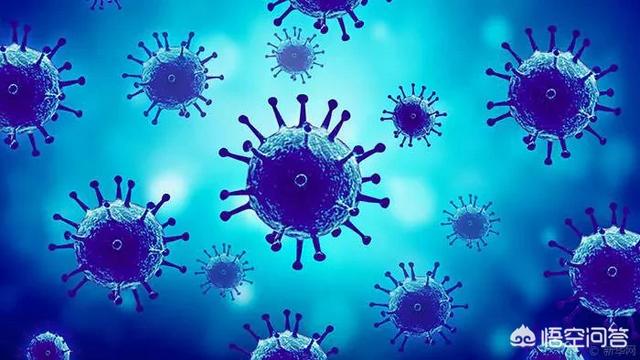
Why is it engulfed by phagocytes and not killed.This is because HIV has the ability to "disguise" itself, shedding its shell and utilizing materials not available in the host cell.The ability to replicate, which is a skill that creatures have evolved and is instinctive.

While it's not 100% preventable, the vast majority of it is preventable at least sometimes. Since it's not completely preventable, the person who brought up the question.What can be done is how to determine what risks and how to avoid such risks。

Let's review the views of authoritative foreign books.In the 2016 Harrison's Internal Medicine, there is a description of the possibility of transmission with a condom, arguing thatThe likelihood of failure with proper condom use is 0.1%.There is a Taiwan's Prof. Wang said after reading, between men and women if the use of condoms. Being infected to be 1000 times later, too tired, a statement that drew laughter.

Don't laugh, be serious! Let's see what the laymen have to say.
One patient, looking up information from somewhere, said that each condom itself has about 100 million or more holes of 120 nanometers or more, and that these holes are not a complete barrier to particulate matter with a diameter equal to or less than 120 nanometers. In other words, it is entirely possible for the Hepatitis B virus at 42 nanometers, the human papilloma virus at 50 to 55 nanometers, and the HIV virus at 120 nanometers to penetrate a natural rubber condom.
These are words that make some Islamophobes despair! This viewpoint scares me me too.
Regardless of how this brainiac found this material, his mind already thinks of HIV as a pervasive and free-flowing super-microbe. Haha.

However, upon closer scrutiny, this view of his is totally untenable. Because we know that the water molecule is less than 1 nanometer, and is under pressure, so why can't the condom pass through the condom after the safety set water?

In fact, the patient may have mistaken the concept. The 120 nanometers he mentioned should be the molecular spacing, that is, the theoretical distance between molecules, not the real distance. This is because each condom, instead of having only one molecular layer, is made up of multiple molecular layers. So, in this way, in the microscopic state, these molecules are interspersed with each other, and the effective void, in fact, is essentially negligible.

Take a step back.AIDS is in the blood and body fluids, not in a free state, but as an organism that has to be parasitized inside the cells.These cells are simply not able to pass through the nanopore described above, if the virus can bully to this point. If viruses could be this powerful, the human race would have died out long ago!

Backing up, even if one dies, one mightThere are one or two viruses that get in, and there are still a lot of conditions that need to be in place for infection to occur, and there needs to be a wound.Besides, the human body's powerful immunity can only be infected if it is so weak and explosive that it can do nothing against even one or two of these viruses.

So, in the final analysis, condom use remains one of the most important methods of preventing sexually transmitted diseases, theBoth the CDC and the World Health Organization recognize the value of condoms in preventing STD protection。

However, there is one thing to keep in mind when using it, and it's actually a pretty simple one:Condoms must be used consistently and correctly, throughout!There are also a few things to keep in mind when using it:

1. Do not use latex condoms that are more than 5 years old or past their expiration date.Condoms Use a new condom each time you have sex, and use it carefully to avoid tears and damage.Those with very long nails should pay special attention to yo!
2. Always wear a condom after having a genital erection and before having genital, oral, or anal sex with your partner.
3. Ensure adequate lubrication for vaginal and anal intercourse. If exogenous lubrication is required.Use only water-based lubricants with latex condoms.And avoid oil-based lubricants such as petroleum jelly and mineral oil, which will weaken the protective effect of latex. However, for polyurethane condoms, both water- and oil-based ones can be used together.
3. Before the condom is withdrawn, in order to prevent it from slipping off, it should be pulled out by holding it firmly from the base of the penis as it is withdrawn while the penis is erect!
4. Use only condoms with the regular safety mark, which are, in general, electronically tested to prevent holes.
5. Failures in condom use are usually due to lack of adherence and incorrect use, not condom breakage. So the cases of failure that people are talking about actually lie in incorrect use.

In summary, HIV can be transmitted through anal sex, penile-vaginal sex, and oral sex, but anal sex carries the highest risk, far more than any other method.Adherence to proper and consistent condom use prevents 80-95% of HIV transmissions.
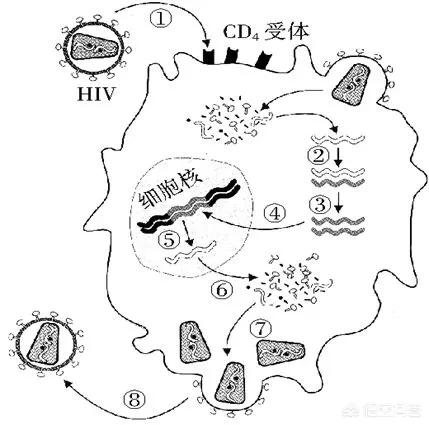
I'm Dr. Long, an infectious disease doctor who loves science and is interested in spreading scientific health concepts. If you're interested in my articles, please like and follow me!
Thanks for the invitation! The title should be corrected to Do condoms keep out HIV?
As an infectious disease doctor I'll answer your question, condoms were invented until now the main function is contraception, that is, to prevent the sperm from entering the woman's body, preventing the combination of egg cells and sperm to achieve the effect of contraception, in recent decades, condoms have become a contraceptive as well as preventing sexually transmitted infections (STIs) as a tool.

Good quality condoms are rarely torn or defective, and normal use of condoms prevents the semen of an AIDS patient from entering the normal body, thus preventing the development of AIDS.
But on the other hand, if the woman has AIDS and the man is normal, will wearing a condom stop HIV?
This situation, although there is no large-scale study, but it is conceivable that under normal circumstances, the penis condom can not all avoid the isolation of vaginal secretions, when men have sexually transmitted diseases or testicles and other skin damage, inevitably come into contact with female secretions, this time there is also the risk of being infected, and vaginal secretions and blood containing the highest amount of virus, so although wearing a condom can not completely stop the AIDS So even though you wear a condom, you can't completely stop the AIDS virus.
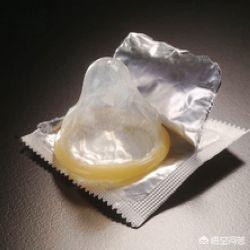
Of course, the process of sexual intercourse is inevitable penile condom slippage, rupture and so on, at this time the normal person side immediately to start HIV blocking treatment, the faster the better, as early as within 24 hours, can be delayed for 72 hours, part of the latest can be blocked within 30 days.
Therefore, the condom is not a universal tool to stop AIDS, in the process of sexual intercourse must be cautious, pay attention to protect each other, at the same time, AIDS patients themselves must be regular treatment, try to reduce their viral load, reduce infectiousness.
Well, I hope that helps!
Follow Dr. Li Ping for advice on HIV blocking treatment!

Condoms not only block HIV, but also other viruses such as human papillomavirus and herpes simplex virus. So using condoms not only prevents pregnancy, but also reduces the risk of STI infection.
Condoms are a barrier method of contraception that not only prevents sperm from entering the vagina to avoid pregnancy, but also reduces diseases and infections associated with sex, except for AIDS, gonorrhea syphilis, and warts, which are sexually transmitted diseases, and the likelihood of transmission is also reduced when condoms are used correctly.
That's why we've been popularizing the science and telling people that if you're having sex and you don't know much about the other person, then it's best to add condoms, even if you're taking the pill and other measures. Especially in the gay population, condomless anal sex among gay men is a high-risk behavior for spreading HIV.
If you want to stay away from HIV and prevent yourself from being infected, then cleanliness is necessary first and foremost. Not being promiscuous, being careful in the choice of sexual partners, and being consistent in condom-wearing behavior are all effective means of protecting yourself.
Personally, I think it is a joke to use condoms to prevent AIDS, what are condoms used for, for contraception, but do you know how effective condoms are at preventing pregnancy, only 97%, yes, even if you use condoms, 3% of people will still get pregnant, it is not even good at its job, how can it do it on the side?
There are many reasons for the failure of condom contraception, such as poor quality rubber material, improper storage leading to rupture, or even in the use of excessive action caused by the condom slippage tear, all these reasons may make the sperm into the body of the spouse; in this case, the condom can not even prevent sperm, how can it be prevented from HIV than it is two thousand times smaller!
If the contraceptive failure, honestly, really no big deal, now there are a lot of contraceptive measures, 24-hour emergency contraceptive drugs can also play a very good effect; once the HIV into the body, it is really a problem, although modern medicine has a very perfect emergency intervention, and can even completely cure the first infected person, but all of this should be based on the basis of the infection was found in a timely manner, we must know! At this stage, the best time for preventive medicine to work is within one hour after infection, and once this time is exceeded, the chances of cure will be smaller!
But how many people can make it in time? The secrecy of the AIDS patients and the ignorance of the infected, which makes the only chance to cure AIDS slip away!
Therefore, do not expect condoms to protect against AIDS, only cleanliness can be the most fundamental and effective way to avoid AIDS!
The above is purely personal, please correct me if there is any disagreement!
Condoms are only useful during sexual intercourse to prevent HIV infection. Because HIV is present in the blood and in the semen, condoms are able to keep HIV out by being a contraceptive. Condoms should be very high grade and of good quality. Don't buy a crooked one. If you buy a low quality one, it will break easily, and it will leak out easily, and if there is HIV in the semen, you will be infected. Condoms must be bought very good products, of course condoms are only able to resist HIV during intercourse. Apart from that, there is also the blood infection, as long as your blood comes in contact with the blood of an AIDS patient you will definitely get infected with HIV. There is also mother and child also have AIDS, because there are three ways of AIDS, one is blood, the second is sex, the third is mother and child, as long as you leave these three channels, you will not get AIDS. As long as you are healthy, have strong resistance, don't go to the hospital to get sick, don't go to the blood transfusion and injection, don't go to sexual intercourse, don't go to give birth to a child, you will definitely not get AIDS.
Condoms are only condoms, they only take care of the sex part, not the AIDS part.
Thank you. Can be, is the risk a little big, wearing a condom is mainly to block the two sides of the body fluids to each other's reproductive organs, but in the case of you do not even know each other have AIDS, both sex, under the passion is difficult to ensure that the woman's body fluids are not stained by the man's genitals, but also difficult to ensure that the man's semen into the woman's genitals, if the two sides of the sexual behavior mildly less intense, the condom use in place, there are no If the sexual behavior of both parties is mild and less intense, the use of condoms in place, there is no shedding, rupture, can completely wrap the male genitals, the safety is a little higher; on the other hand, in order to prevent each other's genital organs there are wounds and lead to infection. Male genital wounds are easy to observe, but female genital wounds may sometimes not be felt, in this case, do not do measures, direct contact for sexual intercourse, then the infection rate can be said to be basically can not escape. But in the end, this is all a matter of probability, did not happen is just a false alarm, will also be afraid of, can but happened can not be undone. Some people say that if you take a blocking drug immediately afterward and stick with it for a month, you'll be fine. But the question is, do people tell you right away? It is more likely that you will feel something strange or uncomfortable in your body, and then you will think of going to the hospital for a checkup or questioning the other person, and by that time, it will be irreparable even if it is a miracle cure. Usually, the AIDS party will not make a big show of telling themselves that they have AIDS, and a lot of themselves because they are also infected, it is very likely to harbor a revenge mentality, so the probability of being infected is almost close to 100%. In the end, today's society is also open to the concept of sex, want to degenerate, want to stimulate very simple, who can, but to do self-discipline is not so easy, after all, society gives too many temptations, we are ordinary people, once indulged in their own, do not clean up their own love, even if not to say that the AIDS, that is, gonorrhea, syphilis, warts and so on, these sexually transmitted diseases will also bring you a lot of pain and trouble. AIDS destroys your immune system, crushes your nerves, makes you suffer from illness and fear, and may also suffer from the pressure of discrimination from friends and relatives and society, which brings a negative impact on your body and mind is absolutely complete and destructive. Social change is rapidly changing, accompanied by the concept of open-mindedness, in this case can develop good habits and healthy outlook on love, sexuality and marriage, it is rare, but I still hope that you, especially in the first and second tier and some economically developed, mobile population of the huge city people, cleanliness, self-discipline for you, absolutely have a hundred benefits and no harm.
Does wearing a condom always prevent HIV? Many people have this question. Because the promotion of the use of condoms is an effective means of preventing the sexual transmission of AIDS in the prevention and treatment of AIDS. But in our daily life, we often hear people say that obviously wearing a condom how to get pregnant? Can condom use prevent AIDS or not? The answer is yes, but it has a prerequisite is the correct use of quality condoms, which has two key words "correct use" and "quality".

First of all, let's talk about the correct use, which includes choosing the right number, wearing it correctly and moving gently. When choosing a condom, we must first choose the right number for ourselves, small one is not easy to wear, two is easy to break, large and easy to fall off; Secondly, the vast majority of condoms on the market are with the storage of spermathecal sacs when using the storage of spermathecal sacs of the air to be discharged and then set on the penis, if not discharged from the spermathecal sacs of the air will be easy to fall off or cause a rupture; Finally, it is in the process of acting to be gentle, not to pursue stimulation action intense, which is also prone to cause condom rupture. The last thing is to be gentle in the process of action, do not pursue stimulation action intense, which is also easy to cause condom rupture.
Next said the quality of qualified, the vast majority of condoms on the market is made of natural rubber, with good toughness and expandability, lubricants to silicone oil-based, there are also some condoms using hyaluronic acid as a lubricant. Brand variety, the price from a few cents a to a few dollars a have, then when choosing to choose the market brand influence, the price of the middle or higher to buy and use, not to buy cheap in order to buy cheap, and no market visibility, quality can not guarantee the condom. In the use of the first inflatable way to check whether the condom leakage, if there is a leakage is substandard quality, can not play a role in preventing the spread of disease.

In conclusion, it is important to remember that insisting on the correct use of quality condoms is an effective means of reducing the sexual transmission of HIV.
This question and answer are from the site users, does not represent the position of the site, such as infringement, please contact the administrator to delete.